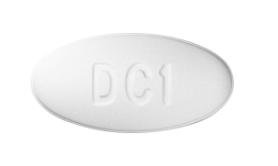Ripretinib Disease Interactions
There are 3 disease interactions with ripretinib.
Ripretinib (applies to ripretinib) cardiac dysfunction
Moderate Potential Hazard, Moderate plausibility. Applicable conditions: Heart Disease, Cardiovascular Disease
Ripretinib may cause cardiac dysfunction. The safety of ripretinib has not been assessed in patients with a baseline ejection fraction below 50%. Assess ejection fraction by echocardiogram or multiple gated acquisition (MUGA) scan prior to initiating treatment with ripretinib and during treatment, as clinically indicated. Permanently discontinue therapy for Grade 3 or 4 left ventricular systolic dysfunction.
Ripretinib (applies to ripretinib) hypertension
Moderate Potential Hazard, Moderate plausibility.
Ripretinib may cause hypertension. It is recommended to control blood pressure prior to initiating therapy and monitor blood pressure as clinically indicated during treatment. Based on severity, withhold treatment with ripretinib and resume at the same or reduced dose or permanently discontinue. Do not initiate ripretinib in patients with uncontrolled hypertension.
Ripretinib (applies to ripretinib) wound
Moderate Potential Hazard, Moderate plausibility. Applicable conditions: Bleeding, Coagulation Defect
Ripretinib has the potential to affect wound healing adversely. Do not administer ripretinib for at least two weeks following major surgery and until adequate wound healing. It is recommended to withhold ripretinib for at least one week before elective surgery. Care should be exercised when using this agent in patients with impaired wound complications. The safety of this agent after the resolution of wound healing complications has not been established.
Switch to professional interaction data
Ripretinib drug interactions
There are 343 drug interactions with ripretinib.
Ripretinib alcohol/food interactions
There are 2 alcohol/food interactions with ripretinib.
More about ripretinib
- ripretinib consumer information
- Check interactions
- Compare alternatives
- Reviews (1)
- Side effects
- Dosage information
- During pregnancy
- Drug class: multikinase inhibitors
- Breastfeeding
- En español
Related treatment guides
Drug Interaction Classification
| Highly clinically significant. Avoid combinations; the risk of the interaction outweighs the benefit. | |
| Moderately clinically significant. Usually avoid combinations; use it only under special circumstances. | |
| Minimally clinically significant. Minimize risk; assess risk and consider an alternative drug, take steps to circumvent the interaction risk and/or institute a monitoring plan. | |
| No interaction information available. |
See also:
Further information
Always consult your healthcare provider to ensure the information displayed on this page applies to your personal circumstances.


